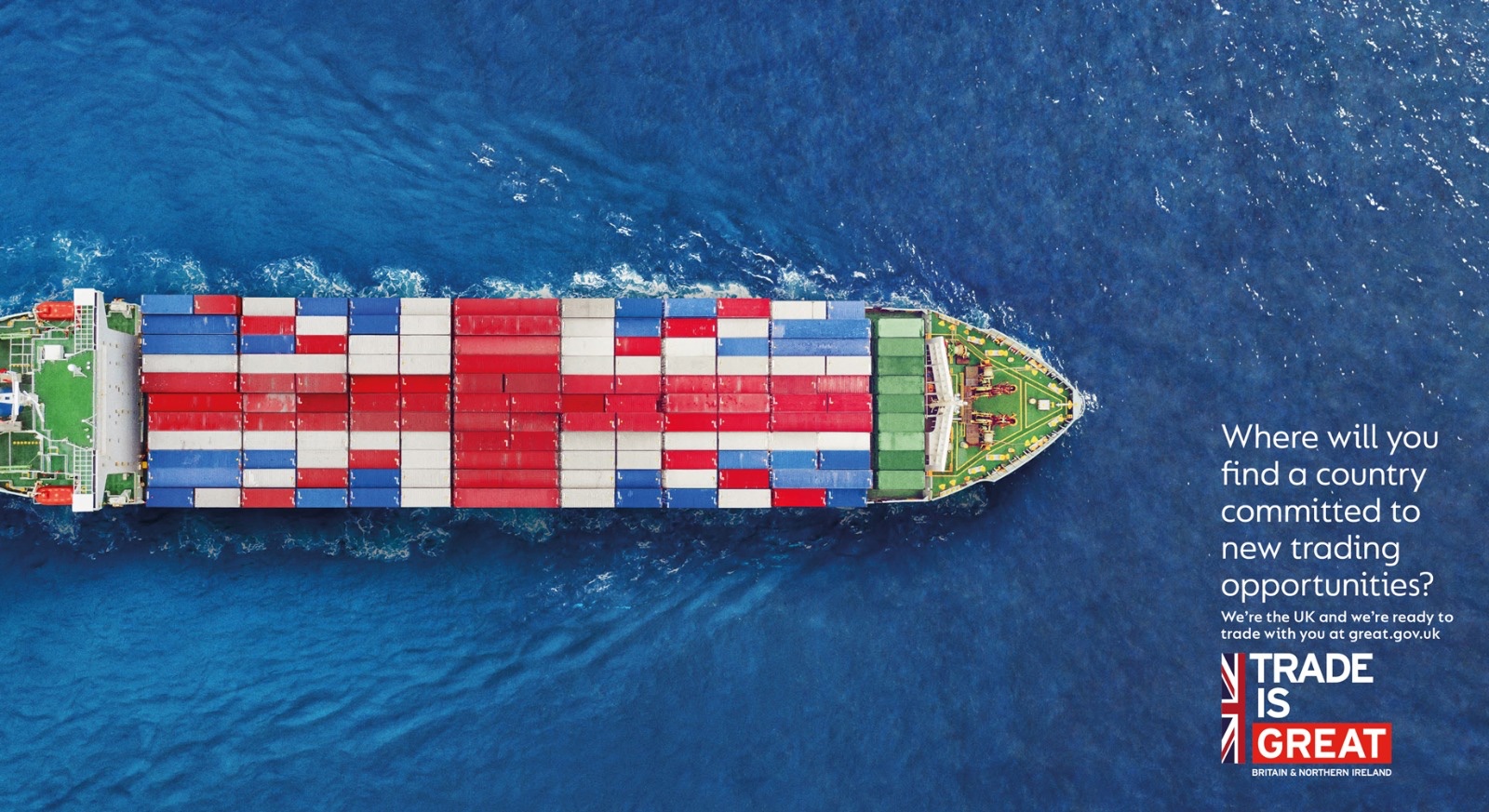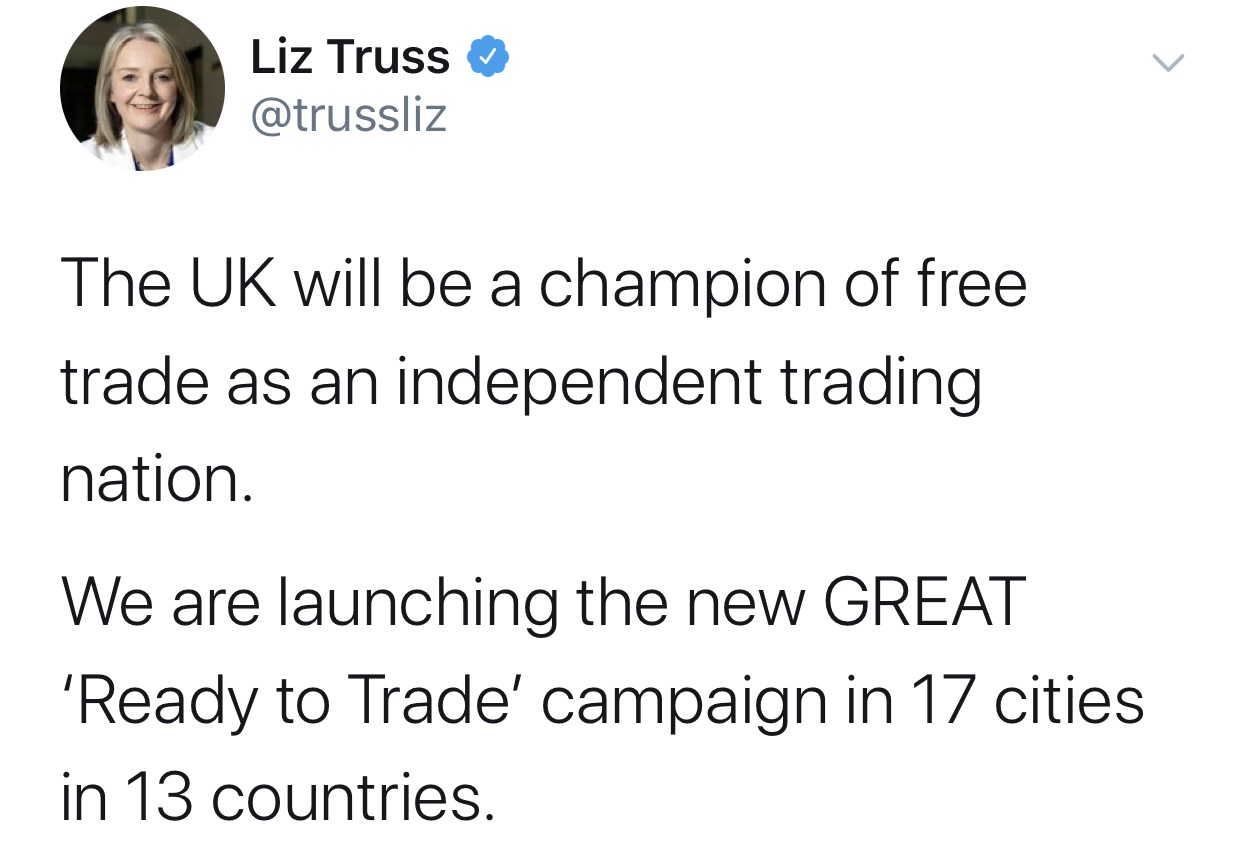Advertising campaign will declare Brexit Britain ‘ready to trade’
Government is to mark the first day of Britain’s departure from the European Union with the launch of an international advertising campaign telling foreign businesses the UK is “ready to trade” with them.

The new ‘Ready to Trade’ campaign will be launched with posters and billboards in 17 cities across 13 countries outside the EU on February 1, the day after Brexit day.
Downing Street says the campaign “seeks to deepen our relationships with future global partners” and features striking images of the union flag, including red, white and blue container units on a freight ship.
An advertising campaign will also be launched in the UK tomorrow, with the message ‘This Friday the UK leaves the EU’, urging businesses here to check for any changes they need to make ahead of January 2021, when the Brexit transition period comes to an end.

Brexit day itself will be marked with a number of initiatives, including a commemorative 50p coin.
Three million of the coins will go into circulation from the 31 January, with a further 7 million entering circulation later this year.
-//-
US diplomats believe the Prime Minister is poised to seek Cabinet authorisation to open trade talks directly with America on a visit to Washington next month.
The Telegraph has learned that British civil servants have drawn up advice for ministers on the “pros and cons” of starting trade talks with America before beginning them with the European Union.
A UK government source who has seen the advice said the argument for going to the US first is to show: “We mean business and we’re not messing around.”
It would also aim to avoid becoming “trapped” by Brussels negotiators and “negate some of the concerns of the EU trying to play the ball in the way they want”, the source said.
“The political signal would be – ‘We’ve got the capacity to do this at the same time, don’t hold this up’.”
To read the entire article, click here: Advertising campaign will declare Brexit Britain ‘ready to trade’
Source: The Telegraph
You must be logged in to post a comment.